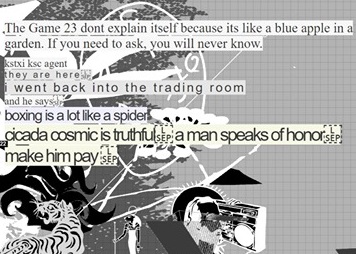Christopher Hitchens and his wife Carol Blue at a Washington Correspondents Dinner in 1995 (Photo by…

Christopher Hitchens and his wife Carol Blue at a Washington Correspondents Dinner in 1995 (Photo by Dafydd Jones)
“I miss his perfect voice. I heard it day and night, night and day. I miss the first happy trills when he woke; the low octaves of “his morning voice” as he read me snippets from the newspaper that outraged or amused him; the delighted and irritated (mostly irritated) registers as I interrupted him while he read; the jazz-tone riffs of him “talking down the line” to a radio station from the kitchen phone as he cooked lunch; his chirping, high-note greeting when our daughter came home from school; and his last soothing, pianissimo chatterings on retiring late at night.
I miss, as his readers must, his writer’s voice, his voice on the page. I miss the unpublished Hitch: the countless notes he left for me in the entryway, on my pillow, the emails he would send while we sat in different rooms in our apartment or in our place in California and the emails he sent when he was on the road. And I miss his handwritten communiqués: his innumerable letters and postcards (we date back to the time of the epistle) and his faxes, the thrill of receiving Christopher’s instant dispatches as he checked-in from a dicey spot on some other continent.
The first time Christopher went public and wrote about his illness for Vanity Fair, he was ambivalent about it. He was intent on protecting our family’s privacy. He was living the topic and he didn’t want it to become all-encompassing, he didn’t want to be defined by it. He wanted to think and write in a sphere apart from sickness. He had made a pact with his editor and chum, Graydon Carter, that he would write about anything except sports, and he kept that promise. He had often put himself in the frame, but now he was the ultimate subject of the story.
His last, unfinished, fragmentary jottings may seem to trail off, but in fact they were written on his computer in bursts of energy and enthusiasm as he sat in the hospital using his food tray for a desk.
When he was admitted to the hospital for the last time, we thought it would be for a brief stay. He thought – we all thought – he’d have the chance to write the longer book that was forming in his mind. His intellectual curiosity was sparked by genomics and the cutting-edge proton radiation treatments he underwent, and he was encouraged by the prospect that his case could contribute to future medical breakthroughs. He told an editor friend waiting for an article, “Sorry for the delay, I’ll be back home soon.” He told me he couldn’t wait to catch up on all the movies he had missed and to see the King Tut exhibition in Houston, our temporary residence.
The end was unexpected.
At home in Washington, I pull books off the shelves, out of the book towers on the floor, off the stacks of volumes on tables. Inside the back covers are notes written in his hand that he took for reviews and for himself. Piles of his papers and notes lie on surfaces all around the apartment, some of which were taken from his suitcase that I brought back from Houston. At any time I can peruse our library or his notes and rediscover and recover him.
When I do, I hear him, and he has the last word. Time after time, Christopher has the last word.”
– From an edited version of Carol Blue’s afterword to Mortality by her husband Christopher Hitchens
Powered by WPeMatico


 :::::::::::::::::::::::::::::::::::::::::::::::::::::::::::::::::::::::::::::::::::::::::::::::::::::::::::::::
:::::::::::::::::::::::::::::::::::::::::::::::::::::::::::::::::::::::::::::::::::::::::::::::::::::::::::::::


Comentários